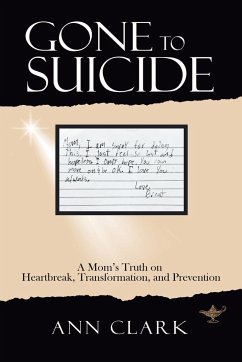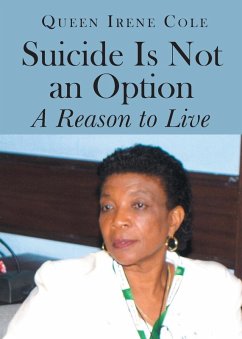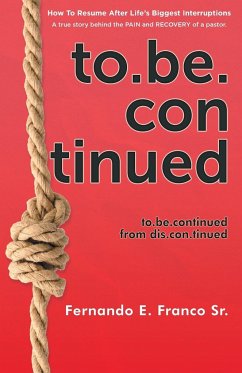
Live to Tell
The Fatal Consequences of Pharmaceutical-Induced Suicide and the Way Forward
Herausgeber: Grayson, Sharilyn
Versandkostenfrei!
Versandfertig in 1-2 Wochen
21,99 €
inkl. MwSt.

PAYBACK Punkte
11 °P sammeln!
After two deployments, one to Iraq and another to Afghanistan, Johnny Lutz returned home with minor injuries to his body. The wounds to his soul, however, grew worse and worse under the VA regimen of opioids and benzodiazepines. Far from soothing his sadness and anxiety, the VA-prescribed pharmaceuticals left Johnny unable to process his feelings or retain joy. Most heinously, it pushed thoughts of suicide into his mind until he could no longer resist them. Johnny Lutz, who once was a cheerful, brave, energetic man, died from pharmaceutical-induced suicide (PIS) in 2013. Johnny's death, devast...
After two deployments, one to Iraq and another to Afghanistan, Johnny Lutz returned home with minor injuries to his body. The wounds to his soul, however, grew worse and worse under the VA regimen of opioids and benzodiazepines. Far from soothing his sadness and anxiety, the VA-prescribed pharmaceuticals left Johnny unable to process his feelings or retain joy. Most heinously, it pushed thoughts of suicide into his mind until he could no longer resist them. Johnny Lutz, who once was a cheerful, brave, energetic man, died from pharmaceutical-induced suicide (PIS) in 2013. Johnny's death, devastated his mother, Janine "Mama Lutz." Wracked by grief and paralyzed at the loss of her son, she was unable to cope for the next several months. But she didn't shut herself away in her grief. She got angry. She began researching the epidemic of veteran suicide by men and women like her son who had served their country in combat roles. Why so many? What were the causes? And what were the similarities? In Live to Tell: the Consequences of Pharmaceutical-Induced Suicide and the Way Back, Mama Lutz relays both her story and research on the roots and consequences of pharmaceutical-induced suicide and ways that veterans and their communities can fight it.












